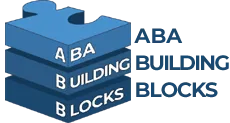In the intricate landscape of autism spectrum disorder (ASD), navigating the complexities of behavior presents both challenges and opportunities for growth. At the forefront of this journey lies the pivotal role of Behavior Intervention Consulting. As we delve into the intricacies of unlocking potential within individuals with ASD, understanding and addressing behavioral patterns becomes paramount. This blog explores the multifaceted aspects of behavior intervention consulting, shedding light on its significance in empowering individuals with ASD to thrive. From implementing tailored strategies to fostering meaningful connections, we uncover how behavior intervention consulting serves as a catalyst for unlocking the unique potential inherent in every individual on the autism spectrum.
Understanding Behavior Dynamics in Autism Spectrum Disorder
Navigating the intricate behaviors within Autism Spectrum Disorder (ASD) requires a nuanced understanding of its dynamics. From repetitive behaviors to difficulties in social interactions and communication, the spectrum manifests in diverse ways. Understanding these dynamics involves delving into the sensory sensitivities, cognitive processes, and emotional regulation challenges that individuals with ASD encounter. By grasping the underlying factors driving behaviors, behavior intervention consultants can develop effective strategies tailored to the unique needs of each individual. This understanding also fosters empathy and acceptance, crucial elements in creating supportive environments that empower individuals with ASD to thrive and reach their full potential.
The Fundamentals of Behavior Intervention Consulting
Behavior intervention consulting forms the backbone of support for individuals with ASD, encompassing a range of fundamental principles and methodologies. Central to this approach is the application of evidence-based strategies rooted in behavioral psychology. Consultants work closely with individuals, families, and caregivers to assess behavior patterns, identify triggers, and implement interventions that promote positive outcomes. These interventions often focus on reinforcing desired behaviors while systematically addressing challenges. Through continuous assessment, data collection, and analysis, behavior intervention consultants refine their strategies to maximize effectiveness and promote sustainable progress. By adhering to these fundamentals, consultants can provide comprehensive support that addresses the diverse needs of individuals on the autism spectrum.
Tailoring Strategies to Individual Needs: Personalized Approaches
Tailoring strategies to individual needs in behavior intervention consulting is essential for maximizing effectiveness and promoting positive outcomes for individuals with autism spectrum disorder (ASD). Understanding that each person with ASD is unique, with their own set of strengths, challenges, and preferences, allows for the development of personalized approaches that cater to their specific requirements. Here are six key considerations for implementing personalized strategies:
- Comprehensive Assessment: Conducting thorough assessments to identify individual strengths, challenges, triggers, and motivators lays the foundation for developing personalized interventions. Utilizing tools such as functional behavior assessments helps to gather valuable insights into the individual’s behavior patterns and needs.
- Setting Clear Goals: Collaborating with individuals with ASD and their support network to establish clear and measurable goals ensures that interventions are targeted and purposeful. Goals should be specific, achievable, relevant, and time-bound, allowing for progress tracking and adjustment as needed.
- Flexibility and Adaptability: Recognizing that what works for one individual may not work for another, maintaining flexibility and being willing to adapt strategies based on ongoing assessment and feedback is crucial. This allows interventions to evolve alongside the individual’s changing needs and preferences.
- Strength-Based Approaches: Emphasizing and building upon the individual’s strengths and interests serves as a powerful motivator and foundation for intervention strategies. By incorporating activities and interventions that align with the individual’s interests, engagement and participation can be enhanced.
- Individualized Reinforcement Systems: Developing personalized reinforcement systems tailored to the individual’s preferences and interests can increase motivation and facilitate desired behavior changes. This may include using preferred items, activities, or social reinforcers as rewards for positive behavior.
- Collaboration and Communication: Maintaining open and transparent communication with the individual, their families, caregivers, and other professionals involved in their care fosters collaboration and ensures consistency across environments. Sharing progress, insights, and concerns allows for adjustments to be made collaboratively, maximizing the effectiveness of interventions.
Tailoring strategies to individual needs in behavior intervention consulting acknowledges the unique characteristics and requirements of each individual with ASD. By implementing personalized approaches that are informed by comprehensive assessment, clear goal-setting, flexibility, strength-based approaches, individualized reinforcement systems, and collaboration, behavior intervention consultants can effectively support individuals with ASD in reaching their full potential.
Building Bridges: Collaborative Partnerships in Behavior Intervention
Successful behavior intervention consulting thrives on collaborative partnerships that unite stakeholders in a shared commitment to support individuals with ASD. Consultants work hand in hand with individuals, families, educators, therapists, and other professionals to coordinate efforts and create cohesive support networks. Through open communication, mutual respect, and shared decision-making, these partnerships foster a holistic approach that addresses the multifaceted needs of individuals with ASD. By leveraging collective expertise and resources, stakeholders can maximize impact and promote consistency across various settings. Building bridges between different stakeholders strengthens the support ecosystem, empowering individuals with ASD to navigate challenges and achieve meaningful progress.
Nurturing Growth and Progress: Measuring Success in Behavior Intervention
Central to behavior intervention consulting is the ongoing process of nurturing growth and progress through systematic evaluation and measurement. Consultants employ various assessment tools, data collection methods, and outcome measures to monitor the effectiveness of interventions and track individual progress over time. This data-driven approach enables consultants to make informed decisions, adjust strategies as needed, and celebrate achievements along the way. By setting clear goals, establishing benchmarks, and regularly reviewing progress, individuals with ASD and their support networks gain valuable insights into their journey of growth and development. Ultimately, success in behavior intervention is defined by the meaningful strides individuals make towards realizing their full potential and achieving greater independence.
Ethical Considerations and Best Practices in Behavior Intervention Consulting
Ethical considerations and best practices are foundational in behavior intervention consulting, ensuring that interventions are not only effective but also conducted with integrity and respect for the individuals involved. Consultants must adhere to ethical guidelines and principles to safeguard the rights and well-being of individuals with autism spectrum disorder (ASD) and their families. Here are five key considerations and best practices:
- Informed Consent: Prior to implementing any intervention, consultants must obtain informed consent from individuals with ASD or their legal guardians. This ensures that they are fully aware of the nature of the intervention, its potential risks and benefits, and their right to refuse or withdraw participation.
- Confidentiality and Privacy: Respecting the confidentiality and privacy of individuals with ASD and their families is paramount. Consultants must uphold strict confidentiality protocols to protect sensitive information shared during assessments, interventions, and consultations.
- Cultural Competence: Recognizing and respecting cultural diversity is essential in behavior intervention consulting. Consultants should strive to understand the cultural backgrounds, beliefs, and values of the individuals they work with, adapting interventions accordingly to ensure cultural sensitivity and relevance.
- Evidence-Based Practices: Employing evidence-based practices grounded in scientific research and empirical evidence ensures that interventions are effective and ethically sound. Consultants should stay abreast of the latest research findings and best practices in behavior intervention for ASD, integrating them into their work.
- Professional Boundaries: Maintaining appropriate professional boundaries is essential for establishing trust and ensuring ethical conduct. Consultants must avoid dual relationships, conflicts of interest, and any behavior that could compromise their objectivity or the integrity of the intervention process.
Ethical considerations and best practices form the bedrock of behavior intervention consulting in autism spectrum disorder. By adhering to principles of informed consent, confidentiality, cultural competence, evidence-based practices, and professional boundaries, consultants can uphold ethical standards while effectively supporting individuals with ASD in reaching their goals and maximizing their potential.
Conclusion
In order for people with autism spectrum disorder (ASD) to flourish and realize their full potential, autism behavior intervention consulting is essential. Through personalized strategies, ethical considerations, and evidence-based practices, consultants at ABA Building Blocks LLC in Naples, Florida, strive to provide comprehensive support tailored to the unique needs of each individual and their families. By fostering collaboration, respecting cultural diversity, and upholding professional standards, we are dedicated to making a meaningful difference in the lives of those we serve. Contact us at (833) 422-2249 or email info@ababuildingblocks.com to learn more about how we can support you on your journey.






